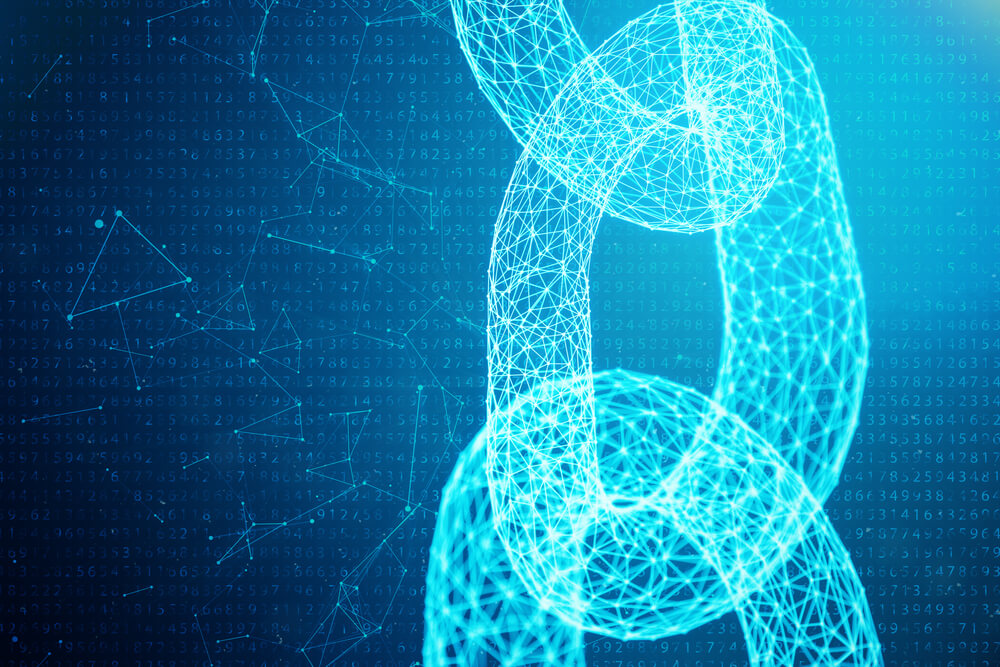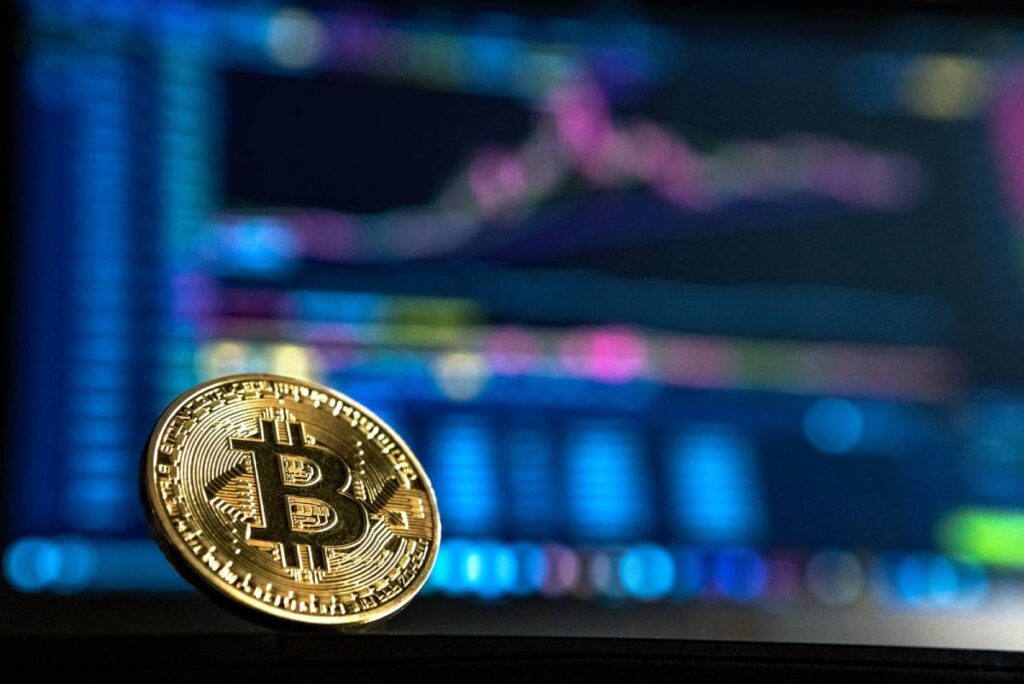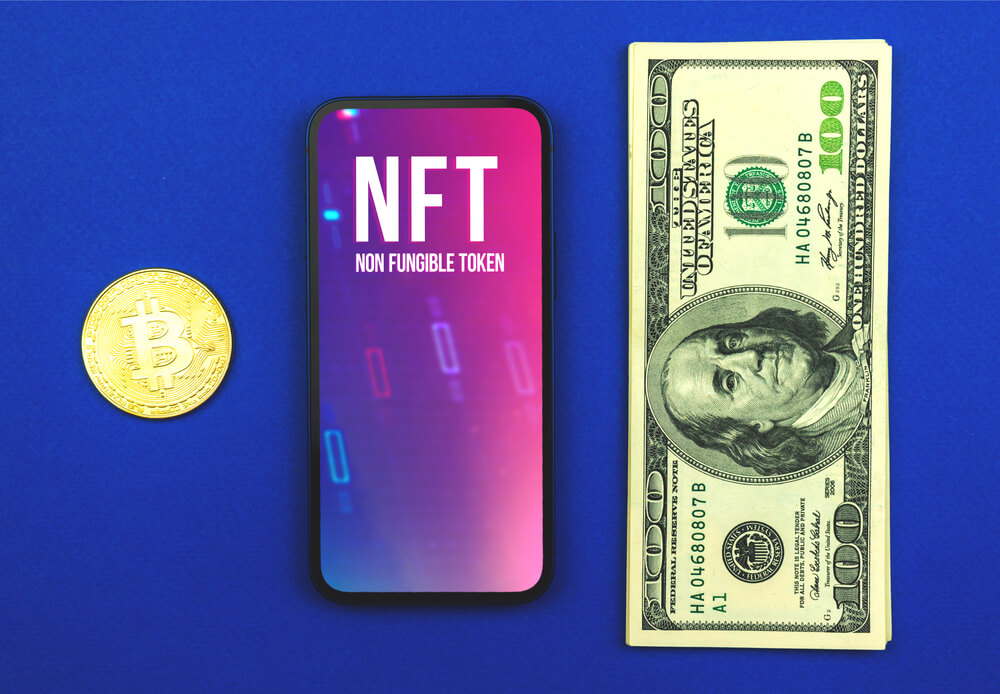If you’re getting started learning about digital assets, it’s important to understand the difference between a blockchain and NFTs. Find out more here!
If you’re learning about NFTs, DeFi, Web3, and crypto, it’s important to understand the difference between non-fungible tokens and the blockchain. So what is the difference between a blockchain and NFTs?
Essentially a non-fungible token or NFT is a unique digital file called that’s powered by a smart contract and stored on a blockchain. An NFT can be an image, a music file, video clip, or even an Eth address. In other words, an NFT is not just a JPEG.
A blockchain is essentially a system or a decentralized computer database for storing and distributing these files. It also acts as a ledger for any transactions related to NFTs.
Table of Contents
What Is a Blockchain?

A blockchain is a special kind of computer database invented in 2008 by an anonymous group of computer scientists and software developers led by Satoshi Nakamoto. They launched the first blockchain in 2009 to create a cash service called Bitcoin.
What’s special about blockchain is that it’s a computer database (think of a bunch of folders holding computer files), but it’s one that’s shared and maintained over a decentralized, peer-to-peer network of computers.
When you call up your photo of lunch from last weekend on Facebook, your computer is requesting that file from a centrally controlled database on Facebook’s computers with Facebook employees acting as administrators, who ultimately have control over that file you asked them to save for you when you posted it.
That’s how nearly all the most popular, commercially successful Web 1.0 and Web 2.0 era platforms work over the Internet. They operate as a group of separate, private databases that store files on computers walled off to keep the files secure, and users gain access by knocking at the front door and giving them the password to get out the files you request.
Who Owns a Blockchain?

A blockchain is not centrally controlled or owned by one person. Instead, the blockchain is distributed via nodes and accessed via a private key or cryptographic proof.
Now Bitcoin was limited in scope to one purpose, digital cash or gold. So the file you access on Bitcoin’s blockchain is your account balance at that bitcoin address.
But the next generation of blockchains like Ethereum, Solana, Avalanche, Cardano, Binance Smart Chain, EOS, Tezos, Polygon, and Flow (in no particular order and just to name a few) were designed to allow users to share and use any kind of file over a decentralized, peer-to-peer database that lives on a blockchain.
Even a program file with executable code. This gave rise to the market in non-fungible tokens (or NFTs) that we have today.
Fungible vs. Non-Fungible Examples

“Fungible” used to be a term used pretty much only by economists in academia. Today, people who collect, buy, sell, and trade NFTs use the term.
The word is a label for any category of things that are all the same as each other as far as exchange value on markets is concerned. The classic example of something fungible is gold. Two pieces of 24k gold of the same weight are worth the same spot price in a gold market.
But a non-fungible item is unique. It’s evaluated individually by markets to price it for its exchange value in money. A used car is non-fungible because there’s no other car exactly like it, with its mileage, accident history or clean title.
Collectibles like baseball cards or fine art paintings are also non-fungible. That’s where NFTs get their name. They are non-fungible tokens that are minted by and live on a blockchain.
Is Money Fungible?
Most money used as cash is fungible. Millions of paper banknotes for $20 and $50 change hands every day for goods and services, and the market views every twenty dollar bill as the same as every other twenty dollar bill.
But there have always been small markets for rare, collectible coins and banknotes that have unique value to collectors because of their stories.
Read our guide to rare collectibles.
Until recently, these have usually been accidents of history, though the U.S. Mint, for example, has always released commemorative coins to eager collectors that pay far more for them than their denominative value as currency, and keep them in prized collections.
They buy, sell, and trade them rather than spending them as cash. Blockchain has enabled the NFT industry to expand this market dramatically in recent years.
The Difference Between Blockchain and NFTs
So in summary, a blockchain is simply a shared database that’s decentralized and operated on a peer-to-peer computer network. A non-fungible token is a digital asset distributed via a blockchain.
Blockchain was originally created to launch an online bank with no institution in charge of it, not even administrators to oversee it, just a computer program that anyone can download to participate in the network without giving anyone administrative control.
This gave the world a truly decentralized, open, transparent, and fair system of accounting for cash. But second-generation blockchain innovators quickly saw the benefits of putting more files than just financial records on the blockchain. Why not funny pictures, inspiring works of art, NFT memes, music, programmable smart contracts, and even entire apps too?
Now we have a world where anyone can mint a non-fungible token on a blockchain, and create a unique, one-of-a-kind, digital artifact of their own, that lives on that blockchain immutably forever, and with their ownership recorded, validated, and secured by the blockchain. In short, NFTs are your files, and blockchain is what makes them truly yours.
